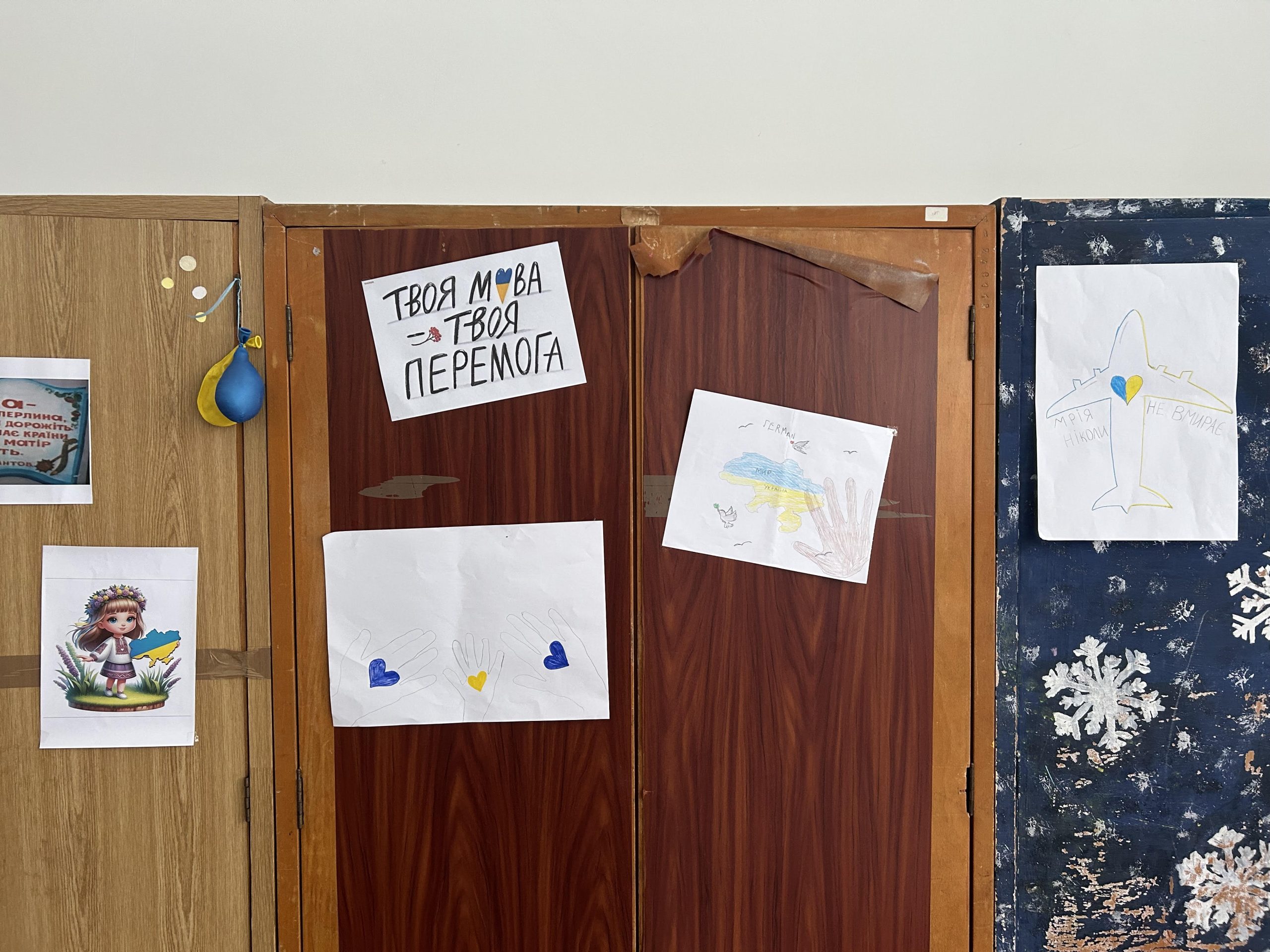“This project is not just a school, it never was,” says Tetyana Tarasenko-Kuzyk. Entering across a gate on a street in the center of Rome, a tree decorated with blue and yellow stripes stands beside the children’s play area. At the entrance, a crucifix hangs between the Ukrainian and Italian flags. Beneath it a desk, where Director Kuzyk — also the Prestigio school’s founder — is at work.
“I’ve been in Italy for twenty years; it was August 2000, the year of the Jubilee,” the Ukrainian Director said. “I was an English teacher in a public school in Ukraine and had realized, unfortunately, that with the salary I earned, I couldn’t offer a future to my daughter. So I decided to leave everything: my home, my job, my family, and come here alone.” She had some aunts in Rome who welcomed her. There, she began working as a babysitter and private tutor. “There was only one thing I couldn’t bear: the lack of freedom caused by not having a residence permit, and the impossibility of seeing my daughter.” She was able to regularize her status in 2003 under the Bossi-Fini law, the Italian law that regulate immigration, subordinating residency permit to a job contract.
In the same period, she began writing for a Ukrainian newspaper in Italy, Forum. “We created a union here to defend the rights of foreigners and workers,” she says. In 2006, Kuzyk was elected as an additional councilor to the City of Rome, a role she held until 2013: a period during which she started dedicating to “the make the Ukrainian voice heard”.
Entering a classroom on the ground floor of the school, the director greets Mariia Pavliuk, who is 26 and has been living in Italy for three years. “The main issue for Ukrainian children is integration in school,” Pavliuk explains. Mariia is teaching to the children the basic words through some videos that explains, through games, the letters of the alphabet: “At the school, we focus on learning through art and play to engage younger students more effectively”. Many are the drawings hanged on the walls, the majority referring to Ukrainian culture: two hands put together holding the state of Ukraine, an airplane with blu and yellow heart inside and “Мрія ніколи не вмирає” (the dreams never die) written along.

The idea for the Prestigio school was born for Kuzyk’s daughter, who joined her in 2003 through family reunification. “I didn’t know where to take her on weekends, she didn’t speak the language and hadn’t made any friends yet. In 2008, we collected signatures from parents and brought them all the way to the Ukrainian Parliament.” The activism that began in Rome managed to create, “in collaboration with Ukrainian activists in other countries as well”, a school for the children of Ukrainian migrants abroad.
“Being able to bring the voice of immigrants to Italian institutions has been, I think, the core mission of my life here,” says the director, as she walks upstairs.
On the upper floor, there’s a middle school classroom. Two boys and two girls sit in front of Lyubov Partola, a teacher and cultural mediator. She has been in Italy for 35 years: “I arrived when there was still the USSR,” she says, arranging her notebook on the desk.
Next to Partola class, there is the computer lab, where Sergio, a programmer and IT teacher, is explaining the use of computer to kids of elementary school. “He used to teach in Kyiv, but today he volunteers here,” Tetyana explains, pointing to a young girl. “He’s here with his daughter.”
“We are all volunteers, and this has to change,” says Kuzyk. “The precarity of Ukrainian teachers, considering the heroism they have shown during these years of war, needs to end. Our dream is to become recognized teachers officially, even in Italy,” she says, as the voices of children playing after class echo from outside, between the yellow and blue plays.
Read also: “Europe must wake up”: Ukraine’s fight three years after

